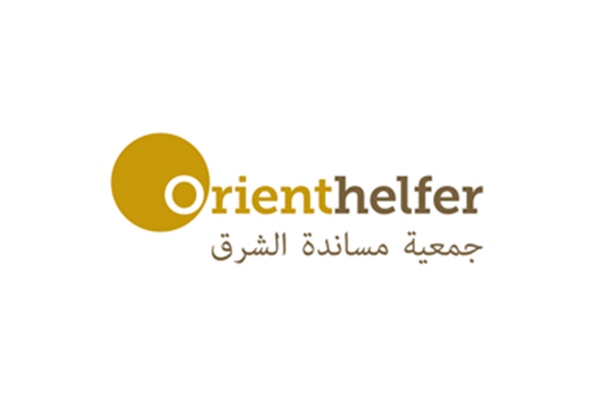Call for Expressions of Interest – Feasibility Study
Terms of Reference
Purpose: Feasibility study to assess the project proposal for “Empowering smallholder farmers and communities in north-western Syria through sustainable agriculture” for submission to the German Federal Ministry for Economic Cooperation and Development (BMZ)
Place of Assignment: Afrin and Jandairis sub-districts, Syria / Gaziantep, Turkey
Period of Assignment: As soon as possible, preferably starting in 1st week of November 2024, for a total of 15-20 working days
I. Background and Rationale
Suffering from the crisis since 2011, Syria is experiencing an inexorable rise in humanitarian needs. Escalating violence in 2023, violations of International Humanitarian Law (IHL) and International Human Rights Law (IHRL), have led to further displacement and suffering. The socioeconomic situation has continued to deteriorate, further exacerbated by the February earthquakes in 2023, negatively impacting social cohesion, and amplifying vulnerabilities. In 2024, 16.7 million people are expected to require assistance, the largest number ever since the beginning of the crisis in 2011 (HNO, 2024 P 7). The displacement of populations has placed significant strain on already limited resources and services in the area, exacerbating existing socio-economic challenges.
The political and socio-economic conditions in Afrin and Jandairis sub-districts of Syria are deeply influenced by the ongoing conflict in the region. Moreover, the influx of internally displaced persons (IDPs) from other parts of Syria has intensified resource competition and further diminished livelihood opportunities for residents. Afrin and Jandairis, came under the control of Syrian opposition forces, contributing to a complex web of political dynamics.
This situation has profoundly disrupted the local economy, resulting in widespread damage to infrastructure, including crucial agricultural facilities and irrigation systems. The potential impacts of climate change and severe shortages in water and energy supplies – particularly fuel in 2024 – will significantly decline agriculture production and yields. The decrease of purchasing power among farmers has led to a reduction in land productivity, compounded by a decline in land fertility due to outdated planting and irrigation techniques. The reduction in emergency food aid and nutrition programs for vulnerable groups, combined with lack of funding for the agricultural sector, risk increasing food insecurity, malnutrition, and related diseases. (HNO, 2024 P 11).
Against this backdrop, the German organisation Orienthelfer e.V in partnership with the local implementing organisation Hand in Hand for Aid and Development (HIHFAD) intends to continue and strengthen the support of an agriculture sector in NW Syria. Funding will be applied for by the German Federal Ministry for Economic Cooperation and Development (BMZ). The target group for this project includes: 1135 Syrian small farmers, along with their families and surrounding communities, who will benefit from the rehabilitation of approximately 21 km of irrigation channels. This effort will provide reliable access to water and reduce irrigation costs, which are a major portion of agricultural expenses. The improvement in irrigation will support farming activities on 1550 hectares of fertile land. Among these, 500 small farmers are receiving additional support to adopt sustainable agricultural practices, including crop rotation techniques and the use of compost to improve soil fertility and overall productivity.
These interventions aim to enhance the long-term viability of farming in the region, reduce production costs, and contribute to more sustainable land use. By applying sustainable agricultural practices, the soil is used sustainably, and yields are increased. In addition, smallholder farmers can receive further training in climate-friendly agricultural practices by activating Farmer Field School (FFS) approach. This will enable them to mitigate the effects of climate change and strengthen the food security of local communities. The aim is to use the FFS to ensure sustainability through knowledge transfer beyond the duration of the project.
As part of the proposal development process, BMZ requires an external study on the feasibility of the proposed intervention design. The results will be one of the main sources for project planning and implementation, as they are to be considered in the project proposal. These terms of reference lay out the details of the assignment and the structure of the feasibility study report.
II. Purpose
The external Consultant undertaking the feasibility study is expected to assess the proposed intervention design and provide a qualified opinion on its feasibility as well as recommendations on maximizing the potential positive impact and mitigating risks. This outcome of the study is required to provide a solid decision basis for the further planning and development of the project.
III. Scope of Work
The Consultant will gather all relevant information. Based on these, he is expected to write the feasibility assessment report which should not exceed 30 pages. Supporting documents must be included. The process and activities must be documented in writing.
Specifically, the Consultant will assess the proposal documents in terms of:
- Technical feasibility, contextual appropriateness, proposed timeline and budgetary cost effectiveness of the proposed interventional support, skills development, capacity building and employment promotion measures
- Needs/problem analysis, planned impact matrix, appropriateness of planned measures for reaching intended goals, risks
- Target group (diversity aspects like ethnicity, religion, gender etc.), personal and technical capacities of local partner, stakeholder analysis
- The criteria for selecting the local entities being involved in or supportive to project implementation, and the proposed cooperation framework with them, notably with regards to programmatic and financial monitoring and evaluation.
- The sustainability of the proposed intervention design and anticipated results and impacts.
The Consultant is expected to use a variety of methods to collect and analyse data. Participatory methods should be used to collect qualitative and quantitative data. He is expected to apply, at a minimum, the following methods for his work:
- Review of the design documents, including technical annexes, and of relevant internal and external information sources such as the HRP strategic plan 2023-2024.
- Discussions with key Orienthelfer e.V. staff involved in the design.
- Discussions with representatives from the proposed partner organization the local NGO Hand in Hand for Aid and Development (HIHFAD).
- Discussions with the key agriculture field actors including (chamber of agriculture, farmer associations, agronomists, technical experts).
- Discussion with the key coordination mechanism actors including other LNGOs and INGOs with similar activities among agriculture cluster partners in Gaziantep hub.
- Outreach to the target group in the intervention area to assess the baseline situation with surveys, interviews, discussions, or other appropriate means
- The Consultant(s) shall indicate the methodology he intends to use in his application. At the end a final report in written form is required.
IV. Specific Criteria for Feasibility Study:
The study should present the context of the planned project at all relevant levels (micro-, meso-, macro-).
Critical examination of the project should be provided, with respect to the OECD DAC criteria of relevance, coherence, effectiveness, efficiency, impact (significance) and sustainability. For each criterion, chapter VI provides guiding questions which should be addressed and answered by the study.
Applying these criteria, findings are to be presented and interpretated. Based on that, recommendations for adjustments to the specific project concept, including impact matrix and project measures, should be formulated as concretely as possible in the final feasibility study report.
Responsibilities of Consultant
- Design the feasibility study
- Draw feasibility study budget
- Write and present inception report
- Collect and analyse data
- Produce draft report
- Facilitate research findings presentation and discussion
- Produce final feasibility study report
- All products related to the feasibility study shall be submitted to Orienthelfer e.V. at the end of the assignment and upon approval of the final report by Orienthelfer e.V.
Responsibilities of Orienthelfer e.V.
- Contract the Consultant
- Provide project specific documents
- Review and approve inception report
- Facilitate access to study areas
- Participate in research findings presentation and discussion
- Review draft feasibility report and approve final report
- Pay the Consultant based on the agreed terms and conditions specified in the expression of interest
Responsibilities of HIHFAD
- Review of the questions that will be asked in the questionnaire or discussion sessions
- Review and approve feasibility study activities
- Provide and/or coordinate logistical support to the Consultant
- Facilitate the Consultant’s access to key stakeholders and specific information, or expertise needed to perform the assessment
- Ensure that all stakeholders are kept informed
- Participate in research findings presentation and discussion
Please click on the link below to access full procurement notice:


